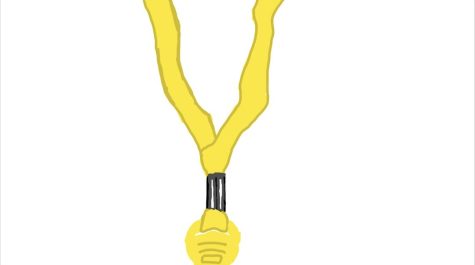Point/Counterpoint: In Favor of Juniors Opting Out
October 31, 2017
Junior year. Two words filled with dread, fear and stress. At its mention, one may think of flurries of ACT practice tests, AP workloads, and the task of building an adequate, well-rounded college application. Students struggle to find the time to attend play rehearsal, club meetings, sports practices and tutoring sessions while also staying on top of their ever-increasing mountain of homework. With such a time-consuming agenda, juniors need every free minute they can get, whether it be to catch up on late assignments, cram in a few extra minutes of studying, or just to take a deep breath. This year, for the first time, a remedy exists for this problem: juniors playing a varsity sport, capable of passing a fitness test, are being offered the option to opt-out of their physical education classes in exchange for a study hall. It is essential that adolescents are active each day to improve the health of their mind and bodies. Some may argue that gym is the perfect outlet for this exercise; however, varsity athletes already physically push themselves, making another interval of exercise unnecessary. Varsity sports are a huge commitment, requiring teammates to attend practices that typically range between one and two hours long and games, matches, or meets, which stretch across the entirety of an afternoon, especially if travel is needed to reach opponents. All members of these teams work hard every day, pushed by coaches to condition and keep in prime shape for upcoming competition. If varsity athletes weren’t already in good physical shape, they would not have made an intense team. Because these students are heavily exercised, gym is truly a waste of time, as its health benefits cease to exist.
Consequently, gym class becomes a useless activity simply filling a void in student’s days, which could be better utilized to stay on top of classes, and balance all obligations. According to an NYU study, 49% of high school students report high levels of stress, 26% of whom also struggle with depression as a result. This study proves that expectations, and an overwhelming amount of work can crush kids, making them anxious, sad, and insecure. As negligible as forty-two minutes every other day may seem, that amount of time is extremely valuable for someone who is really struggling to keep everything together. A poll of public school teachers found that on average students are assigned 3.5 hours of homework a night. For a student balancing athletic obligations, this amount of time may seem almost impossible. If a high schooler is granted forty-two minutes every so often to complete a significant chunk of assignments, the large size of all responsibilities may seem to shrink, giving students a chance to stay on top of all of it, therefore calming down, and feeling less overwhelmed. Furthermore, scientific studies from Nationwide Children’s Hospital show that adolescents typically only get 7 – 7 ½ hours of sleep, significantly lower than the 9-9 ½ hours that professionals have determined a teenager needs. A study hall used effectively to finish up homework will leave students with less to do after their extracurricular activities, allowing them a longer night’s sleep, which can help improve behavior, mood, cognitive ability and academic performance. Junior year is a critical time in every student’s scholarly career, and opting out of gym is a privilege that can help to ease academic stress.






